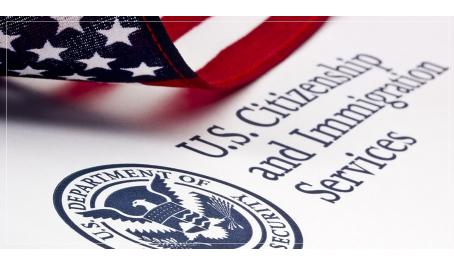- Membership
- The NY Chapter
- Our Career Services
- Committees
- National FACC Network
Startup Founders & Entrepreneurs: All You Need to Know about the International Entrepreneur Rule (IER)
Member news | May 25, 2021
On May 10, 2021, the Biden administration announced the relaunch of the International Entrepreneur (IE) Parole program for entrepreneurs. This is an amazing opportunity for startup founders, especially in the tech industry, because it provides a pathway to get work authorization in the US to work on and develop the business venture.
The IER was first introduced under the Obama administration in 2017, however, it got quickly blocked by the Trump administration with a proposed rulemaking to rescind the program in 2018. This program was reintroduced by the new administration to boost the US economy recovery in the context of the COVID pandemic. It is part of Department of Homeland Security (DHS) regulations and can be found at 8 CFR 212.19.
The IE parole program provides a great alternative to the regular immigration toolbox comprised of E-2, L-1A, O-1A Visas or the EB-2 National Interest Waiver. But though people commonly refer to this program as a “startup visa,” this is a parole, not a visa. The distinction is actually significative as it relates to the concept of admission in US immigration law. Parole doesn’t provide an immigration status, and entrepreneur parolees cannot adjust status in the US – and obtain a green card – without first obtaining one of the visas mentioned above. Another consideration is that parole is highly discretionary, and DHS may terminate or revoke parole at any time.
To qualify for parole, foreign entrepreneurs must demonstrate that they will provide a “significant public benefit” to the United States, and in particular, they must:
- Possess a substantial ownership interest in the startup entity: at least 10% ownership interest at the time of the initial grant of parole, and at least 5% thereafter for renewal;
- Have a central and active role in the startup entity such that they are well-positioned to substantially assist with the growth and success of the business;
- Otherwise merit a favorable exercise of discretion;
Their US startup entity must:
- Have been established in the US within the past 5 years of applying for parole;
- Have “substantial potential for rapid growth and job creation,” such as:
- Have received within 18 months immediately preceding the filing of an application for initial parole:
- a significant capital investment of at least $250,000 from qualified U.S. investors with established track records of successful investments, or
- an amount of at least $100,000 from US government awards or grants from federal, state, or local government entities, or
- Have received within 18 months immediately preceding the filing of an application for initial parole:
- Alternatively, if those funding requirements are partially met, “other reliable and compelling evidence” of the startup entity's substantial potential for rapid growth and job creation, such as for example being selected in a highly competitive startup accelerator.
Parole may be granted for up to 3 entrepreneurs per startup entity. The entrepreneur’s spouses and children may also be eligible for parole, and the spouse may apply for work authorization. Furthermore, parole may be granted for an initial period of 30 months (2.5 years), with an option for a 30-month extension (another 2.5 year) if the business continues to grow.
In conclusion, we are rejoicing in this IE parole program. This is a great solution for people who are not investing their own funds into the business or don’t otherwise qualify for the traditional immigration visas.
If you have any questions and are interested in this program or if you would like to explore your immigration options, please feel free to contact FACC-NY member attorney Valerie Gharagouzloo at ArkSwan Legal, PLLC.
The MemberPortal is only accessible to FACC-NY Members. If you are a member and are experiencing difficulty accessing the platform or are not an FACC-NY Member and would like to join the network, please reach out to membership@faccnyc.org for assistance.


